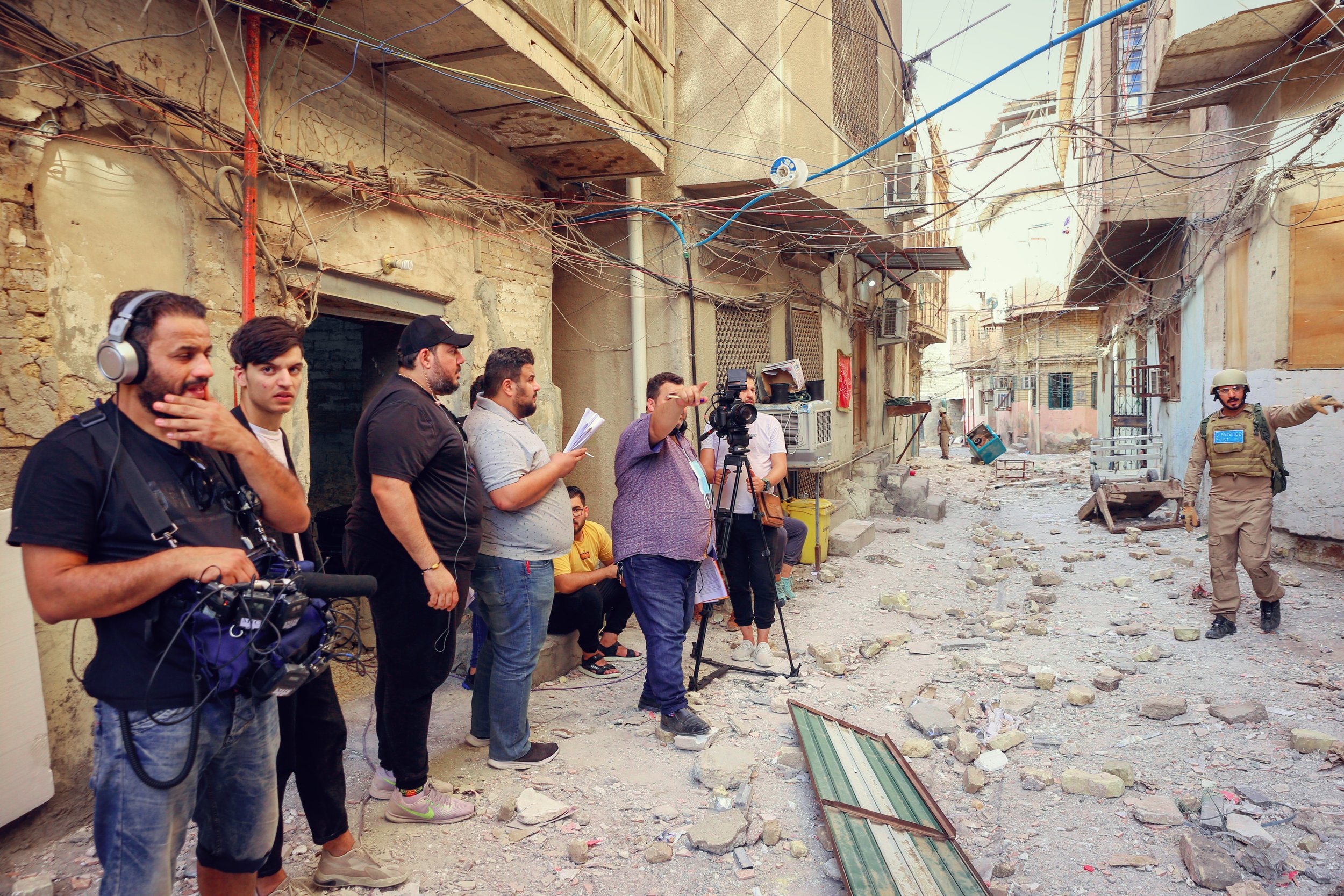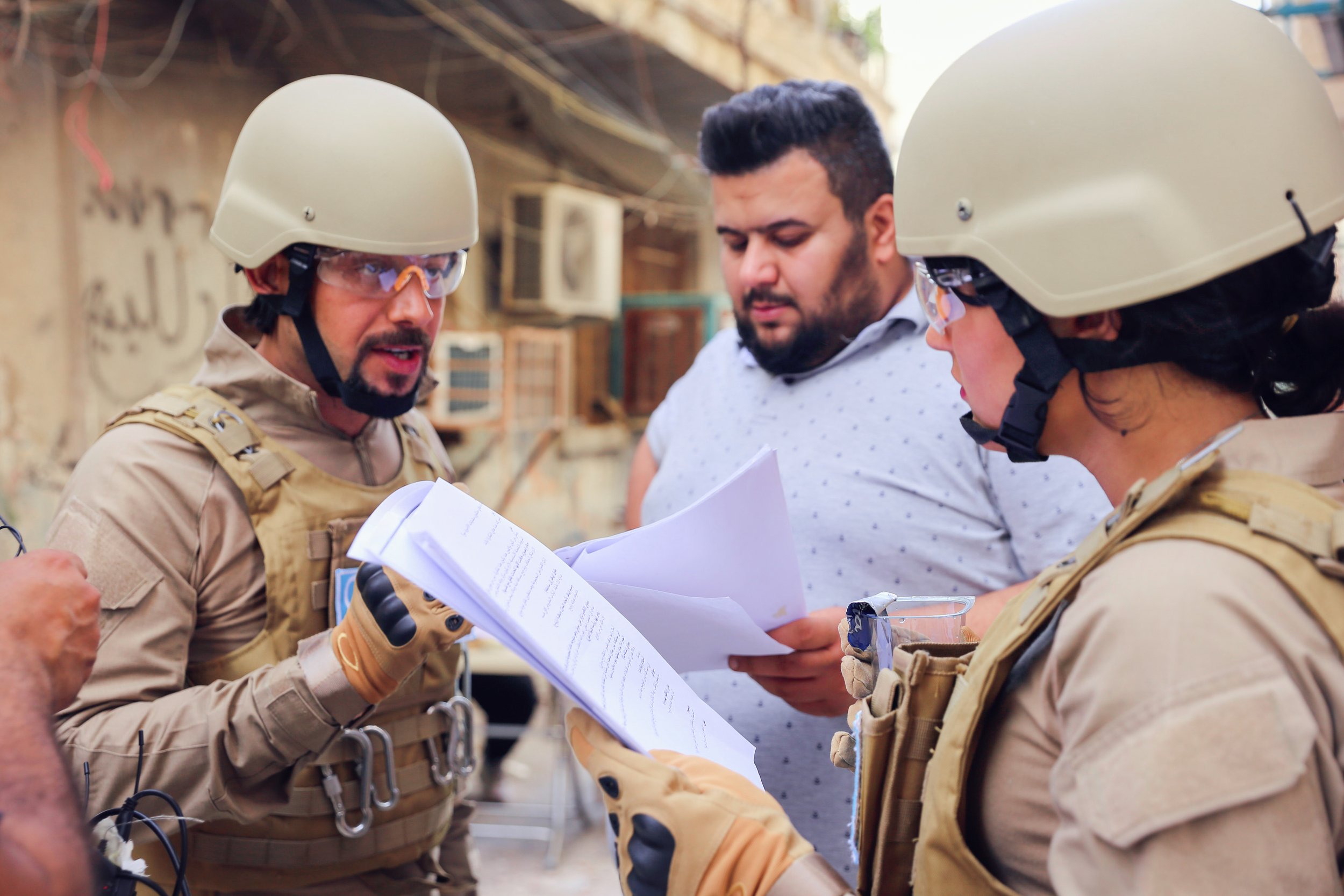
Safe House: Using Edutainment to Challenge Harmful Gender Norms in Iraq
Client: UNMAS Iraq | Pillar: Resilience, Gender and Social Inclusion | Duration: 18 Months
Thematic Areas: Girls and Women’s Empowerment
Services Provided: Pre-production & Testing, Production & Post-production, Dissemination, Evaluation





The Challenges
Gender equality remains a sensitive topic in Iraq. While progress has been made in recent years, gender stereotypes and social norms governing men’s and women’s roles in society continue to limit women’s full participation in public life.
One area where this issue remains acute is the world of work. It is still widely believed that women should remain in the home,. Where women do work, there are clearly prescribed roles that are considered ‘suitable’, while women also report experiencing significant workplace bullying and harassment.
The challenge for MAGENTA was how to address the harmful social norms that prevent women from playing an equal role, including in the workplace. Our hypothesis was that edutainment – where the audience is invited to put themselves in the shoes of a marginalised community – could help change attitudes and, ultimately, behaviours.
Project Background
MAGENTA worked with UNMAS Iraq to create a drama series about a woman in a traditionally male profession. The context for the series was explosive hazard management and risk awareness in Iraq.
MAGENTA produced a high-quality six-part series with a gender message. We then developed and implemented an online promotional campaign to ensure that as many people as possible saw the series..
Finally, we conducted baseline and endline surveys to assess whether watching the series changed our audience’s attitudes towards the harmful gender norms we were seeking to address.
What We Did
Phase 1: Pre-production and Testing
Pre-production: MAGENTA conducted a media landscape and target audience analysis to understand the types of content our audience enjoys and how best to reach them. MAGENTA reviewed the series’ script and worked on casting and location scouting for the series.
Testing: MAGENTA conducted four separate rounds of testing focus groups, at different stages of the series’ development. The focus groups tested a range of factors, including how entertaining the series was, how clearly our messages came through, and how persuasive they found the content.
Phase 2: Production
MAGENTA shot the series in Baghdad, with UNMAS technical experts on-hand to ensure accuracy of scenes focused on explosive ordnance detection and clearing.
The series consisted of a pilot and five episodes (six episodes in total) each with an average duration of 30 minutes.
Phase 3: Dissemination
MAGENTA created a YouTube channel and Social Media platforms (Facebook and Instagram) where the series’ episodes were uploaded. MAGENTA also planned and implemented a social media marketing campaign, including teasers and posts designed to drive engagement with the issues addressed by the series.
The series ran over six weeks, with new episodes uploaded every weekend from 23 July to 27 August on YouTube, Facebook and Instagram. In that time:
The series reached 6.6+ million people on social media
The episodes were viewed more than 4 million times
Episode 6 reached more than 1.2 million people in one week
The social media posts reached more than 35 million people
Almost 400,000 people actively engaged with the series on our social pages and posts
The series attracted over 28,000 likes, with only 17 dislikes on social media
Monitoring & Evaluation
The evaluation was designed to answer the following evaluation questions:
Did the attitudes of Iraqis around gender equality improve as result of the project?
Did social norms in Iraq around gender equality improve as a result of the project?
Can edutainment be used as a means of shifting harmful social norms?
To answer these questions, MAGENTA interviewed a randomly sampled control and treatment group at baseline and endline. We found:
There was a change of perception when it comes to non-gender-traditional jobs.
Women were perceived to be more qualified in non-gender traditional roles and more trusted as a colleague in the workplace, regardless of the job type.
The series contributed to increasing awareness around discriminations against women in the workplace
